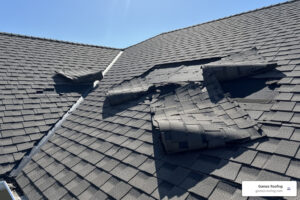Solar vs Traditional Pool Heaters
Heating a backyard pool often becomes one of the largest energy expenses for homeowners, but choosing the right system can transform costs and sustainability. By comparing solar pool heaters to heat pump, gas, and electric pool heaters, this guide shows you which technology delivers the greatest energy efficiency, lowest operating cost, and best return on investment. We’ll explore how each system works, measure efficiency with COP, BTU, and solar gain, break down upfront and ongoing expenses, assess carbon footprints, and help you decide which pool heater suits your climate, budget, and usage. Along the way, discover how Gomez Roofing combines expert solar installation with durable workmanship to maximize your long-term savings.
What Are the Main Types of Pool Heaters and How Do They Work?
Pool heaters fall into four main categories—solar, heat pump, gas, and electric—each converting energy in a different way to warm water. Understanding these mechanisms reveals why efficiency and cost vary so widely.
How Do Solar Pool Heaters Harness Solar Energy to Heat Pools?
Solar pool heaters use a network of roof-mounted collectors to absorb sunlight and transfer heat to circulating pool water. A pump forces water through black polymer panels, where solar radiation raises the temperature before returning it to the pool.
Key components include:
- Solar collector panels mounted on southern-facing roofs
- Dedicated circulation pump and filter
- Automated valve to redirect flow through collectors
- Controller unit that optimizes flow based on temperature
Solar collectors → Absorb sunlight → Heat transfer to water
Pump and valve → Circulate water → Regulate solar gain
Harnessing free solar energy eliminates fuel costs and extends swim season, making solar heating ideal where sunlight is abundant.
What Is a Heat Pump Pool Heater and How Does It Extract Heat from Air?
Heat pump pool heaters operate like air conditioners in reverse. They extract ambient air heat using a refrigerant cycle, amplify it via a compressor, and transfer thermal energy to the pool water.
Key features include:
- Coefficient of Performance (COP) typically 5–7
- Low-speed fan and quiet operation
- Requires electricity to run compressor and fan
Heat pump unit → Extracts ambient heat → Compressor amplifies temperature
Refrigerant cycle → Transfers heat → Warm pool water
With high COP ratings, these units deliver five times more heat energy than the electricity they consume, offering consistent year-round performance in mild climates.
How Do Gas Pool Heaters Provide Rapid Heating Using Natural Gas or Propane?
Gas pool heaters combust natural gas or propane in a burner chamber to generate high-temperature flue gases. Heat exchanges through coils, warming pool water as it passes over the hot surfaces.
Important considerations:
- BTU output typically 100,000–400,000 BTU/hr
- Fast heat-up times for quick temperature boosts
- Venting and clearance requirements
Combustion chamber → Burns gas fuel → Exhausts flue gases
Heat exchanger → Transfers thermal energy → Rapid heating
While gas heaters heat pools quickly, their lower thermal efficiency and rising fuel prices result in higher operating costs compared to other methods.
What Are Electric Pool Heaters and When Are They Most Effective?
Electric pool heaters use resistance coils to generate heat as electricity passes through them, directly warming the water.
Best use cases:
- Small plunge pools or spas
- Intermittent heating needs
- Limited installation space
Electric coils → Resistive heating → Immediate water temperature rise
Simple installation → Standard electrical circuit
Electric heaters deliver 100% conversion of electricity to heat, but high per-kWh rates make them costly for large pools or continuous use.
How Do Solar Pool Heaters Compare to Traditional Heaters in Energy Efficiency?
Comparing efficiency across technologies requires consistent metrics—COP for heat pumps, BTU per watt for gas and resistance, and solar gain percentage for collectors.
What Energy Efficiency Metrics Define Pool Heater Performance?
Efficiency metrics clarify how much heat is delivered per unit of energy consumed:
| Heater Type | Metric | Value or Definition |
|---|---|---|
| Solar Pool Heater | Solar Gain | Percentage of solar radiation converted to heat |
| Heat Pump Pool Heater | COP (Coefficient) | Heat output ÷ electric input (typical 5–7) |
| Gas Pool Heater | Thermal Efficiency | BTU of heat per BTU of fuel (70–85%) |
| Electric Pool Heater | Resistive Efficiency | Electricity directly converted to heat (100%) |
Energy Efficiency of Pool Heating Technologies
A comparative study of various pool heating technologies, including solar, heat pump, gas, and electric heaters, evaluates their energy efficiency based on metrics like COP and solar gain. The study emphasizes the importance of selecting the most efficient system to minimize energy consumption and costs.
U.S. Department of Energy, Pool Heating Efficiency Guide, 2023
How Does Solar Pool Heater Efficiency Measure Against Heat Pump, Gas, and Electric Heaters?
| Feature | Solar Pool Heater | Heat Pump Heater | Gas Pool Heater | Electric Heater |
|---|---|---|---|---|
| Energy Input Cost | $0 (solar only) | Moderate ($/kWh) | High (fuel $) | Highest ($/kWh) |
| Seasonal Efficiency | Very High | High | Moderate | Low |
| Operating COP or Gain | 60–80% solar gain | COP 5–7 | Efficiency 70–85% | 100% conversion |
| Ideal Climate | Sunny regions | Mild climates | All climates | Any, small pools |
What Real-World Energy Savings Can Florida Homeowners Expect?
A typical 20,000-gallon pool in Florida can require 50,000–100,000 BTU/hr to maintain 80°F. Switching from a gas heater to a solar system can reduce annual heating bills by up to 80%, saving $1,200–$1,800 per year. A heat pump saves 50–60% over gas, while electric resistance may cost more than double gas rates.
Solar Pool Heating in Florida: A Cost-Benefit Analysis
This analysis examines the long-term cost savings and environmental benefits of solar pool heating systems compared to traditional methods in Florida. It highlights the significant reduction in energy bills and carbon emissions achieved by homeowners who switch to solar.
Florida Solar Energy Industries Association, Solar Pool Heating Report, 2024
Transitioning to solar or a high-COP heat pump extends swim season at minimal added expense, making them sustainable choices for property managers and homeowners.
What Are the Cost Differences Between Solar and Traditional Pool Heaters?
Evaluating total cost of ownership includes upfront investment, installation, and long-term operating and maintenance expenses.
How Do Initial Installation Costs Vary Among Pool Heater Types?
| Pool Heater Type | Typical Installation Cost | Notes |
|---|---|---|
| Solar Pool Heater | $4,000–$7,000 | Panels, pump, plumbing, roof mounting |
| Heat Pump Pool Heater | $3,500–$5,500 | Unit, electrical hookup, pad installation |
| Gas Pool Heater | $2,500–$4,000 | Gas line, venting, burner installation |
| Electric Pool Heater | $1,500–$3,000 | Simple wiring, small footprint |
What Are the Long-Term Operating and Maintenance Costs?
- Solar Pool Heater: minimal—pump electricity and annual panel check
- Heat Pump: moderate—electricity for compressor, filter cleaning
- Gas Heater: high—fuel cost and annual burner service
- Electric Heater: very high—continuous electricity cost
Over ten years, solar can save $12,000–$18,000 compared to gas, while heat pumps save $6,000–$10,000. Electric resistance heaters often result in net operating losses.
How Does Return on Investment (ROI) Differ for Solar vs Traditional Heaters?
Solar pool heater ROI typically spans 4–7 years in Florida, after which energy is virtually free. Heat pump ROI runs 6–9 years based on local electricity rates. Gas and electric heaters rarely recoup initial costs through savings, making them less attractive long-term.
What Environmental Impacts Do Solar and Traditional Pool Heaters Have?
Reducing carbon emissions and embracing renewables align pool heating with sustainability goals and energy regulations.
How Do Solar Pool Heaters Reduce Carbon Emissions Compared to Gas and Electric Heaters?
Solar pool heaters operate without combustion or direct fossil fuel use, cutting CO₂ emissions by 2–4 tons per household annually. By contrast, gas heaters emit carbon dioxide with every cycle, and electric heaters rely on grid power that may include fossil generation.
Carbon Footprint Analysis of Residential Pool Heating
This research assesses the carbon emissions associated with different pool heating methods, demonstrating the environmental impact of each technology. It highlights the significant reduction in carbon emissions achieved by using solar pool heaters compared to gas and electric heaters.
Environmental Protection Agency, Residential Energy Consumption and Emissions, 2023
What Role Does Renewable Energy Play in Pool Heating Sustainability?
Integrating solar thermal collectors leverages 100% renewable energy, reducing reliance on non-renewable power and stabilizing long-term operating costs regardless of fuel market volatility.
Are Energy Star Certified Pool Heaters More Environmentally Friendly?
Energy Star certification ensures heat pump and gas models meet strict efficiency standards, lowering greenhouse gases and operating expenses. Choosing certified equipment guarantees at least 15% better performance than conventional units.
How Should Homeowners and Property Managers Choose the Most Efficient Pool Heater?
Selecting the optimal heater depends on climate, pool size, usage frequency, and budget.
What Factors Affect the Choice of Pool Heater Efficiency?
- Local climate and solar irradiance
- Desired swimming season length
- Pool volume and insulation
- Upfront budget versus long-term savings
- Property aesthetic and roof capacity
How Does Florida’s Climate Influence Solar Pool Heater Performance?
High year-round sunshine in Florida yields consistent solar gain above 70%, driving rapid payback and maximizing ROI. Humid subtropical conditions also aid heat pump efficiency but rarely match solar’s free energy.
Why Choose Gomez Roofing for Solar Pool Heater Installation and Service?
With decades of local experience, Gomez Roofing delivers tailored solar pool heater installations that harness Florida’s sun. Our expert technicians ensure proper panel orientation, leak-free plumbing, and seamless integration with your roof. Backed by customer-centric service and durable workmanship, we optimize energy savings and protect your property value. For proven solar pool heating solutions, trust Gomez Roofing to deliver efficiency that pays dividends season after season.
What Are the Common Questions About Solar vs Traditional Pool Heaters?
Are Solar Pool Heaters Worth the Investment?
Solar pool heaters justify their cost in Florida with rapid payback, minimal operating expenses, and extended swim seasons. By eliminating fuel costs and reducing carbon footprint, they prove highly valuable for long-term savings.
What Is the Most Efficient Way to Heat a Pool?
In sunny climates, solar pool heaters deliver the highest energy efficiency by converting free solar radiation into heat. In cooler regions, high-COP heat pump pool heaters offer superior performance compared to combustion or resistance methods.
How Much Does It Cost to Run a Solar Pool Heater?
Operating a solar pool heater incurs only pump electricity costs—typically $50–$150 per season—since solar collectors themselves require no fuel. This contrasts with thousands of dollars in gas or electric bills for traditional heaters.
Do Solar Pool Heaters Work in Winter or Cloudy Conditions?
Solar systems remain effective in mild winter sunlight but may require supplemental heating on overcast days. Pairing with a heat pump or gas backup ensures year-round comfort without sacrificing efficiency.
Is a Heat Pump or Solar Pool Heater Better for Energy Savings?
Solar pool heaters outperform heat pumps in direct sunlight, offering free energy once installed. Heat pumps excel in low-light or cooler temperatures, providing reliable efficiency when solar gain dips.
What Are the Installation and Maintenance Considerations for Solar and Traditional Pool Heaters?
How Complex Is the Installation Process for Each Pool Heater Type?
- Solar: Roof collector layout, plumbing integration, and controller setup (2–4 days)
- Heat Pump: Pad placement, electrical hookup, and airflow clearance (1–2 days)
- Gas: Fuel line connection, venting, and safety inspection (1–3 days)
- Electric: Circuit installation and compact unit placement (1 day)
Proper permitting and professional installation ensure safe, code-compliant systems.
What Maintenance Is Required to Keep Pool Heaters Efficient?
- Solar: Annual panel inspection, filter cleaning, and valve check
- Heat Pump: Regular coil cleaning, refrigerant check, and fan service
- Gas: Annual burner tune-up and vent inspection
- Electric: Occasional element inspection and circuit test
How Does Maintenance Impact Overall Efficiency and Cost?
Proactive maintenance sustains peak performance—well-maintained solar collectors retain 70–80% gain, heat pump COP remains high, and gas burners burn cleanly. Ignoring service can drop efficiency by 20–30%, inflating energy bills and shortening lifespan.
Each pool heating option offers unique efficiency and cost profiles. By weighing solar’s low operating cost, heat pump’s high COP, gas’s rapid heat, and electric’s simplicity against installation and maintenance factors, homeowners and property managers can make a data-driven choice. For expert installation, reliable service, and long-term energy savings, trust Gomez Roofing’s proven solar pool heating solutions. Ready to lower your pool heating costs? Visit our homepage to explore services and schedule a consultation today.




